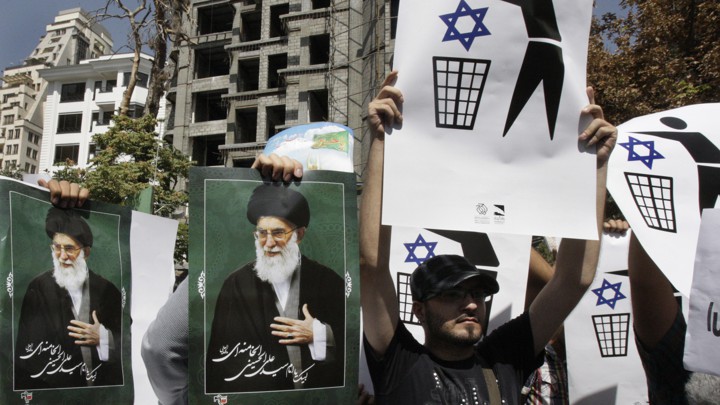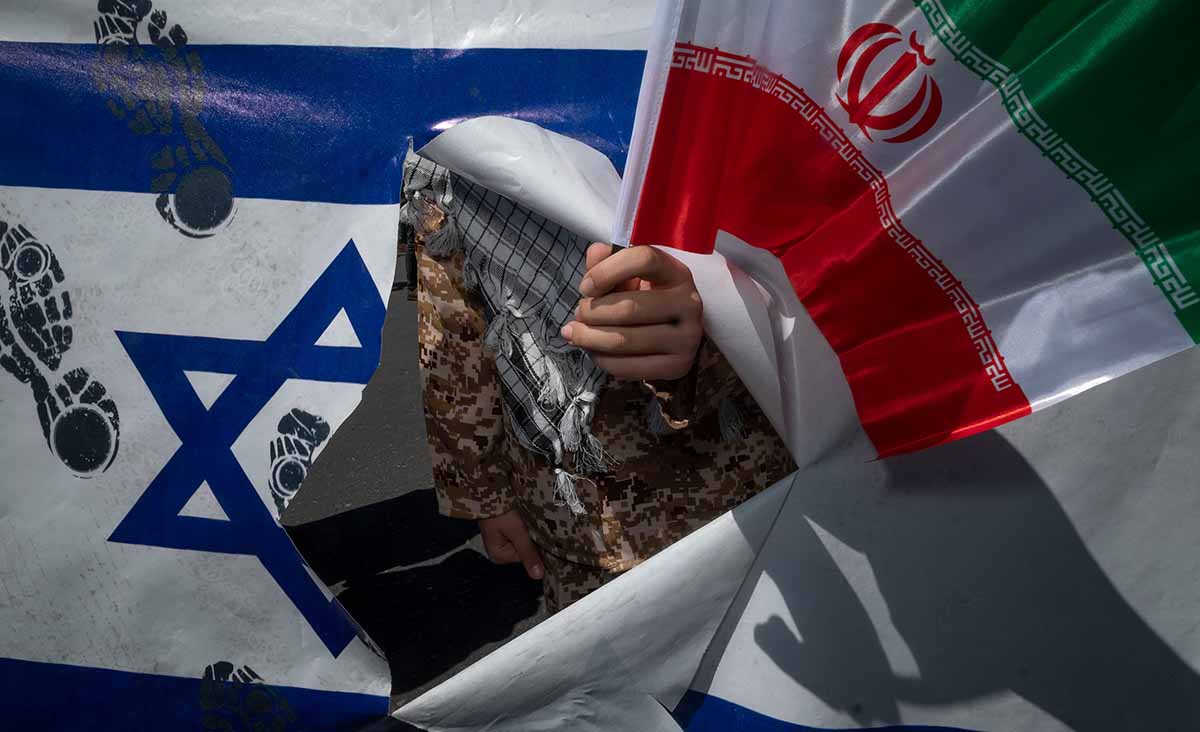Historical Context and Background: Iranian Israeli

The relationship between Iran and Israel has been marked by a complex and often hostile history, rooted in deep political, religious, and ideological differences. These tensions have escalated into periods of open conflict, most notably during the 1973 Yom Kippur War and the 1980-1988 Iran-Iraq War, where Iran indirectly supported Iraq. The current situation is characterized by a lack of diplomatic relations and a high level of mistrust, fueled by the ongoing Israeli-Palestinian conflict and Iran’s nuclear program.
Cultural and Religious Differences
Iran and Israel have distinct cultural and religious identities, contributing to the strained relationship between the two nations.
- Iran is a predominantly Shia Muslim country, with a strong emphasis on Islamic values and principles. The Iranian government is guided by Islamic law, known as Sharia, and religious leaders hold significant political influence.
- Israel, on the other hand, is a Jewish state, with a majority Jewish population and a secular government. Jewish religious traditions and values play a significant role in Israeli society, but the state’s governance is not directly based on religious law.
These contrasting religious identities have created a historical divide, leading to differing perspectives on issues like the status of Jerusalem, the Palestinian territories, and the legitimacy of Israel’s existence.
Political Ideologies, Iranian israeli
Iran and Israel hold opposing political ideologies, further complicating their relationship.
- Iran’s political system is a theocracy, with the Supreme Leader holding ultimate authority. The country’s foreign policy is often guided by principles of Islamic revolution and opposition to Western influence.
- Israel, in contrast, is a democracy with a multi-party system and a commitment to democratic values. Its foreign policy focuses on national security and the protection of its citizens, often prioritizing close alliances with Western powers.
These ideological differences have fueled tensions over issues like nuclear proliferation, regional security, and support for various factions in the Middle East.
Current Issues and Tensions

The relationship between Iran and Israel is characterized by deep mistrust and animosity, fueled by a complex interplay of historical grievances, ideological differences, and competing regional ambitions. These tensions manifest in various ways, creating a volatile dynamic with significant implications for regional stability.
Nuclear Ambitions
Iran’s nuclear program has been a major source of contention between the two countries for decades. Israel views Iran’s nuclear ambitions as an existential threat, fearing that Tehran might develop nuclear weapons capable of targeting its territory. Iran, on the other hand, maintains that its nuclear program is for peaceful purposes, primarily for energy production and medical research. The international community has been deeply divided on the issue, with some countries, including the United States, imposing sanctions on Iran to curb its nuclear activities, while others, including Russia and China, have opposed such measures.
Perspectives and Narratives

The Iranian-Israeli conflict is a complex and multifaceted issue with deeply rooted historical and ideological tensions. Understanding the diverse perspectives and narratives from both sides is crucial for comprehending the conflict’s dynamics and exploring potential pathways for resolution.
Perspectives from Iran
Iran’s perspective on the conflict is shaped by a combination of historical grievances, religious beliefs, and political considerations. Iran views Israel as an illegitimate state occupying Palestinian land and a threat to its national security. This perspective is rooted in the 1948 Arab-Israeli War, in which Iran supported the Palestinian cause and saw the establishment of Israel as a setback for the Arab world. The Iranian government and its supporters often portray Israel as a tool of Western imperialism and a threat to the region’s stability.
- Government Officials: Iranian officials often accuse Israel of supporting terrorism and destabilizing the region. They frequently condemn Israel’s actions in the Palestinian territories and advocate for the establishment of a Palestinian state. For example, Supreme Leader Ali Khamenei has repeatedly called for the destruction of Israel, stating that it is a “cancerous tumor” that must be eradicated.
- Religious Leaders: Religious leaders in Iran, particularly those associated with the Shia clergy, often view Israel as a symbol of Zionist aggression and a threat to the Islamic world. They emphasize the importance of supporting the Palestinian struggle and see the conflict as a religious war against the “enemies of Islam.”
- Ordinary Citizens: Public opinion in Iran is generally supportive of the government’s stance on the Israeli-Palestinian conflict. Many Iranian citizens view Israel as an enemy state and support the Palestinian cause. The Iranian government’s media outlets play a significant role in shaping public opinion, often portraying Israel as a ruthless and oppressive regime.
Perspectives from Israel
Israel’s perspective on the conflict is shaped by its own historical experiences, security concerns, and national identity. Israel views itself as a democratic state surrounded by hostile neighbors and sees Iran as a major threat to its existence. This perspective is rooted in the historical conflict with Arab nations, the numerous wars fought since its establishment, and the ongoing threat of terrorism. Israel’s government and its supporters often portray Iran as a state sponsoring terrorism and seeking to acquire nuclear weapons, posing a serious existential threat.
- Government Officials: Israeli officials frequently accuse Iran of supporting terrorist groups like Hezbollah and Hamas and of developing nuclear weapons with the intention of attacking Israel. They emphasize the need for a strong military and diplomatic stance against Iran to deter its aggression.
- Religious Leaders: Religious leaders in Israel, particularly those associated with the Orthodox Jewish community, often view Iran as a threat to the Jewish people and the state of Israel. They emphasize the importance of defending Israel’s security and maintaining its Jewish identity.
- Ordinary Citizens: Public opinion in Israel is generally supportive of the government’s stance on Iran. Many Israeli citizens view Iran as a major threat and support the government’s efforts to contain its influence in the region. Israeli media outlets often portray Iran as a dangerous and aggressive regime, highlighting its support for terrorism and its nuclear ambitions.
The Role of Media and Propaganda
Media and propaganda play a significant role in shaping public opinion and fueling tensions in the Iranian-Israeli conflict. Both sides use media outlets to disseminate their narratives, often presenting biased or exaggerated accounts of events. The use of propaganda can exacerbate tensions and make it difficult to find common ground. For example, Iranian media often portray Israel as a brutal oppressor of Palestinians, while Israeli media often portray Iran as a state sponsoring terrorism and seeking to destroy Israel.
Avenues for Dialogue and Reconciliation
Despite the deep-seated tensions and mistrust, there are potential avenues for dialogue and reconciliation between Iran and Israel. Some experts believe that shared interests, such as combating terrorism or promoting regional stability, could provide common ground for cooperation. Others suggest that a gradual process of building trust and confidence through track-two diplomacy or cultural exchanges could help bridge the divide. However, achieving lasting peace will require addressing the core issues of the conflict, including the Palestinian issue and Iran’s nuclear program, which will require significant political will and compromise from both sides.
Iranian israeli – The complex geopolitical landscape of the Middle East, marked by tensions between Iran and Israel, can often have far-reaching consequences. A prime example of this is the potential impact on air travel, as seen with the recent ground stop at NYC airports , which was triggered by security concerns.
While this specific incident may not have been directly linked to Iranian-Israeli tensions, it highlights the interconnectedness of global affairs and the potential for disruptions in even seemingly unrelated areas.
The complex geopolitical relationship between Iran and Israel is often marked by tension and mistrust. This dynamic is further complicated by the presence of regional actors seeking to influence the balance of power. The ongoing debate over the potential for dialogue and cooperation between these two nations is intertwined with broader considerations of security and stability in the Middle East, much like the enduring popularity of the delta mickey mouse table and chair reflects the timeless appeal of classic design.
Finding common ground and fostering constructive dialogue will require a commitment to diplomacy and a shared understanding of the stakes involved.
